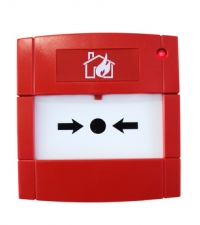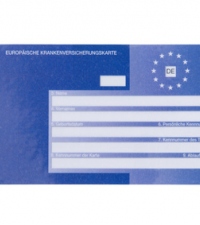Making a Plan for an Emergency Back Home

One of the most difficult things about being away from the place you are from if leaving those you love behind. In cases of emergency, it doesn't matter if you are 10 minutes or 10 hours away - you want to be there. No matter what the emergency, the best defense is a plan.
Steps to Prepare
Write a List
As painful as it could be, write down every worst case scenario. If you are aware of issues, you can think of solutions. And if the possible risks involved in your move away outweigh the positives, you may need to re-think your plan.
Contacts
Keep updated contacts! It is important to maintain up-to-date contacts for friends and families. The more information the better. Include:
- Full names
- Phone numbers (home, work, and cell)
- Home addresses
- Work address
Most e-mail systems have a built-in contact list that you can regularly check and update. Social media services like Facebook are another resource for monitoring your contacts. If you prefer to use paper and pen, an address book is adequate. To be perfectly safe, make copies of this information and keep it in a separate space. Regularly check your friends and families details and update. In addition, remember to supply friends and family with your contact details. It is just as vital that they know how to contact you in an emergency.
Create a list of phone numbers and e-mail addresses for everyone in your family or household. This can be as easy as entering into the electronic database of their phone or computer, or making a contact card to keep in their wallet. Your family should also maintain an emergency kit complete with the contact list.
Transportation Options
Study and understand your transportation options so you know how to get home fast. Formulate a default plan for getting back as quickly as possible. You can even program important numbers like airlines, train services, or other modes of transport into your phone for emergency use.
Some places may offer a bereavement or compassionate fare that can offer significant discounts. These ranges from not at all, up to 50 percent. This may only be available for immediate family members, while some airlines allow for half relatives, step relatives, and in-laws. A major benefit is that these fares tend to be quite flexible, allowing for open leave and return dates. These options are rarely advertised and you will usually need to speak with a booking agent to secure this option. As proof, most airlines require the name of the terminally ill or deceased person, the contact details of the attending doctor, or of the funeral home. When applicable, a copy of the death certificate may be required by some airlines. It is best to check the airline first, to determine what the requirements might be.
However, note that discount fares may still be a better deal. This discounts are off of full fares. If you have the luxury, it is best to shop around for the best deal.
Documents
It is always important to maintain the proper travel documents and have them readily available. Secure the proper visas that allow for your passage in and out of the country at all times (for information on visas, refer to EasyExpat's 50+ country guides "Passport, Visa & Permits" section). This includes travel documents for all family members including minors.
If you have a pet that would travel with you, know the requirements for bringing an animal through the necessary borders. Base requirements:
- Microchip (ISO standards)
- Vaccination (generally every pet older than 3 months must be vaccinated against rabies. The vaccination usually must be administered at least 21 days before arrival. However the vaccination cannot be older than 12 months from the date of arrival.)
- Certificate of good health (issued by a vet after an exam)
- Payment for Transport
For a guide to taking your animal abroad, refer to our article on Expat Pets.
If you need to leave quickly, the last thing you want to do is scramble for documents. If organization isn't your forte, at least have your passport or travel documents in a safe, secure place where they are kept at all times.
Emergency Fund
A last minute trip home costs money. It is in your best interest to maintain an emergency fund for use in instances just like this. It is up to you how much you feel comfortable saving, but most experts recommend you maintain between three and six months worth of your living expenses for an emergency fund.
If you don't already have savings to start from, begin putting a little aside each month. Keep this account sperate from your general finances and only use it in case of a real emergency. You will be thankful to have it if/when a real problem does occur.
- My Life Abroad -
A selection of expat stories

"A fun compulsive read!"
J. Matcham, Amazon
"I strongly advise people ready to live abroad to read this book!"
Patrice, Amazon

 Guide to the European Health Insurance Card
Guide to the European Health Insurance Card  How to Choose Expat Health Insurance
How to Choose Expat Health Insurance A Guide to Overcoming Homesickness
A Guide to Overcoming Homesickness APRIL Travel Insurance
APRIL Travel Insurance Cigna Global
Cigna Global William Russell
William Russell Global events on real estate markets: are they connected?
Global events on real estate markets: are they connected? Private Tuition: A Priority Among Expat Families for Their Children
Private Tuition: A Priority Among Expat Families for Their Children The Ultimate Guide: Buying Real Estate as an Expat
The Ultimate Guide: Buying Real Estate as an Expat  Basics to Real Estate Investing for the Long Term
Basics to Real Estate Investing for the Long Term